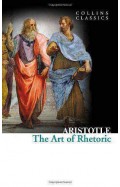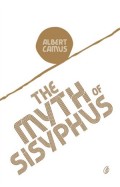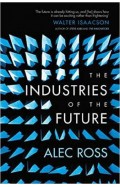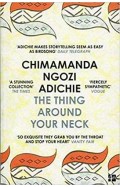- Home
- Books
- Categories
- Fiction
- Fantasy
- The Structure of Scientific Revolutions - 50th Anniversary Edition
The Structure of Scientific Revolutions - 50th Anniversary Edition
By: Thomas S. Kuhn
-
Rs 4,945.50
- Rs 5,495.00
- 10%
You save Rs 549.50.
Due to constant currency fluctuation, prices are subject to change with or without notice.
With The Structure of Scientific Revolutions, Kuhn challenged long-standing linear notions of scientific progress, arguing that transformative ideas don’t arise from the day-to-day, gradual process of experimentation and data accumulation but that the revolutions in science, those breakthrough moments that disrupt accepted thinking and offer unanticipated ideas, occur outside of “normal science,” as he called it. Though Kuhn was writing when physics ruled the sciences, his ideas on how scientific revolutions bring order to the anomalies that amass over time in research experiments are still instructive in our biotech age.
This new edition of Kuhn’s essential work in the history of science includes an insightful introduction by Ian Hacking, which clarifies terms popularized by Kuhn, including paradigm and incommensurability, and applies Kuhn’s ideas to the science of today. Usefully keyed to the separate sections of the book, Hacking’s introduction provides important background information as well as a contemporary context. Newly designed, with an expanded index, this edition will be eagerly welcomed by the next generation of readers seeking to understand the history of our perspectives on science.
With The Structure of Scientific Revolutions, Kuhn challenged long-standing linear notions of scientific progress, arguing that transformative ideas don’t arise from the day-to-day, gradual process of experimentation and data accumulation but that the revolutions in science, those breakthrough moments that disrupt accepted thinking and offer unanticipated ideas, occur outside of “normal science,” as he called it. Though Kuhn was writing when physics ruled the sciences, his ideas on how scientific revolutions bring order to the anomalies that amass over time in research experiments are still instructive in our biotech age.
This new edition of Kuhn’s essential work in the history of science includes an insightful introduction by Ian Hacking, which clarifies terms popularized by Kuhn, including paradigm and incommensurability, and applies Kuhn’s ideas to the science of today. Usefully keyed to the separate sections of the book, Hacking’s introduction provides important background information as well as a contemporary context. Newly designed, with an expanded index, this edition will be eagerly welcomed by the next generation of readers seeking to understand the history of our perspectives on science.
The Structure of Scientific Revolutions - 50th Anniversary Edition
By: Thomas S. Kuhn
Rs 4,945.50 Rs 5,495.00 Ex Tax :Rs 4,945.50
Zubin Mehta: A Musical Journey (An Authorized Biography)
By: VOID - Bakhtiar K. Dadabhoy
Rs 892.50 Rs 1,050.00 Ex Tax :Rs 892.50
The Teachings of a Stoic - Selected Discourses and the Encheiridion
By: Epictetus
Rs 715.50 Rs 795.00 Ex Tax :Rs 715.50
The Teachings of a Stoic - Selected Discourses and the Encheiridion
By: Epictetus
Rs 715.50 Rs 795.00 Ex Tax :Rs 715.50
Siyasi Muslims: A Story of Political Islams in India
By: Hilal Ahmed
Rs 1,015.75 Rs 1,195.00 Ex Tax :Rs 1,015.75
Written in Bone - Hidden Stories in What We Leave Behind
By: Professor Sue Black
Rs 1,950.75 Rs 2,295.00 Ex Tax :Rs 1,950.75
On Her Majesty's Frightfully Secret Service
By: Rhys Bowen
Rs 2,035.75 Rs 2,395.00 Ex Tax :Rs 2,035.75
The Thing Around Your Neck - Paperback
By: Chimamanda Ngozi Adichie
Rs 1,795.50 Rs 1,995.00 Ex Tax :Rs 1,795.50
Watch Out! : The World's Most Dangerous Creatures
By: Ginjer L. Clarke
Rs 276.25 Rs 325.00 Ex Tax :Rs 276.25
Zubin Mehta: A Musical Journey (An Authorized Biography)
By: VOID - Bakhtiar K. Dadabhoy
Rs 892.50 Rs 1,050.00 Ex Tax :Rs 892.50
The Structure of Scientific Revolutions - 50th Anniversary Edition
By: Thomas S. Kuhn
Rs 4,945.50 Rs 5,495.00 Ex Tax :Rs 4,945.50
The Teachings of a Stoic - Selected Discourses and the Encheiridion
By: Epictetus
Rs 715.50 Rs 795.00 Ex Tax :Rs 715.50












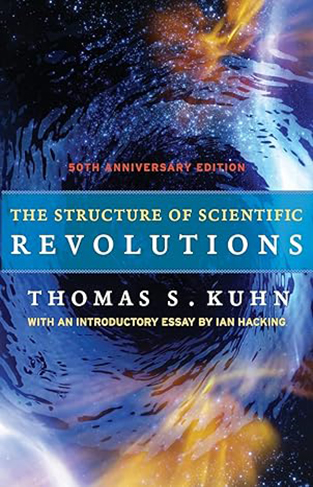
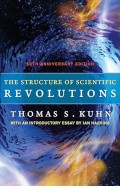
-120x187.jpg?q6)







